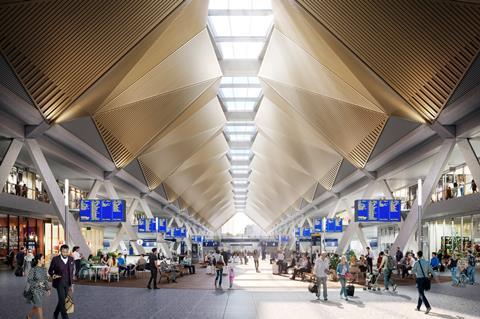Project has spent further £200m of reserve cash since spring
The Department for Transport has instructed HS2 to find savings and efficiencies to bring projected costs in line with targets.
The first phase of the megaproject is unlikely to meet its £40.3bn target cost as it stands, with an additional £200m of its £5.6bn delegated contingency funding spent since March.

According to a six-monthly update to parliament, the DfT is now projecting around £1.9bn of net additional cost pressures on the first phase, with additional design work on the Euston terminal and lower-than-planned productivity on main civils.
The government and HS2 confirmed last October that the number of platforms at the station would be reduced from 11 to 10 to allow construction to be done in a single phase.
While the DfT said this would “assist in addressing some of the cost pressure at Euston”, it admitted that “significant elements” of the design work can no longer be used, with the related costs reported as a £105.6m impairment in its most recent annual report and accounts.
HS2 presented refreshed designs for the station, drawn up by a constorium of Arup, WSP and Grimshaw, in March.
According to the DfT, the construction partner on Euston, Mace Dragados, is “continuing to optimize design and construction efficiencies” for the job.
>> In pictures: HS2 launches second London tunnel boring machine
Transport minister Mark Harper said HS2 was experiencing high levels of inflation, “consistent with the rest of the economy” and was working with suppliers to mitigate price rises.
“Whilst inflation is not affecting the overall affordability of HS2 in real terms because the total budgets and cost estimates for each phase are set in 2019 prices, it is creating pressures against its existing annual funding settlements, which have been set in cash,” he said.
While not on track to hit its target cost, Harper said phase 1 was still set to be delivered within its overall budget and said that the phase 2a remained unchanged, with a cost range of between £5.2bn and £7.2bn.




























1 Readers' comment